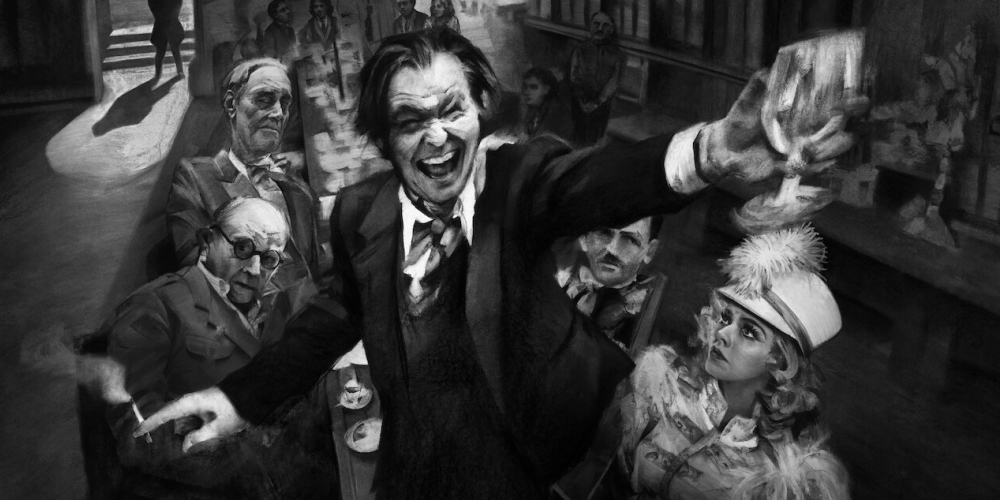Perhaps no movie looms larger in the collective consciousness than Citizen Kane; perhaps no filmmaker more legendary than its multi-hyphenate creator Orson Welles, who directed, wrote, and starred in the film.
One of those credits he shares – that of screenwriter, with Herman J. Manckiewicz. It’s he who provides the focal point of David Fincher’s film, which is one part making-of and one part character study.
In 1940, Mank (Gary Oldman, compelling), a notorious wit and old-school drunk, currently ensconced in a half-body cast,1 is holed up on a ranch in small-town California with a secretary (Lily Collins, underserved)2 and a crate of booze.
Wunderkind Welles (Tom Burke in a glorified cameo) has a blank cheque from RKO and has given Mank 90 days to come up with a script – and boy, does he have a doozy in mind.
Adopting a similar flashback to Kane, Mank – itself written by the director’s late father, screenwriter and journalist Jack Fincher – explores the inspiration behind the film. This takes the form, not just of newspaper magnate William Randolph Hearst (Charles Dance, deadpan imperiousness) and mistress Marion Davies (Amanda Seyfried, brilliant)3, as the myth would have it, but the state of the American nation circa 1933-’37.
Mank‘s first act, which takes place mainly on the backlot at MGM, feels less like any Fincher film we’ve seen before and more like the Coen brothers’ Hail, Caesar!. Writers patter at tables and spin half-baked ideas to movie execs; Louis B. Mayer (Arliss Howard), simultaneously brazen and manipulative, strides down corridors making proclamations. Mank’s first encounter with Davies, with whom he forms a neat but doomed friendship, takes place fittingly enough atop a pyre, part of a set-piece for an imaginary4 western.
These scenes feel like lavish recreation rather than deconstruction – Ren Klyce’s monaural sound design pops and crackles, cigarette burns make an appearance – but it’s only once we get into politics that Mank truly acquires a character of its own.
The Depression is in full swing and Mayer is tearfully soliciting voluntary pay-cuts from the studio workforce. Socialist Upton Sinclair (Bill Nye)5 is running for gubernatorial office and the power players in Hollywood, not always the liberal bastion it seems today, are determined to bring him down.
Mank contains a plethora of references to Kane, beyond aping its structure6; as in an election night party montage where a sozzled Mank is surrounded by a haze of voting figures and flashbulbs bursting. Erik Messerschmidt’s deep-focus, black-&-white cinematography recalls Kane, too; though the digital image is too sharp to be truly authentic.
A principled but self-destructive loser is provoked into action, a moment where Oldman leans in to light his cigarette from a roaring hearth – a scaled-down version of the ludicrously ostentatious fireplace from Kane – feels like a perfect encapsulation of character.
It’s this scene, the “Don Quixote” rant, that provides the film’s main showcase, as an inebriated Mank spins a familiar yarn to a room of increasingly appalled bigwigs at Hearst Castle. After this dramatic climax, though, the film runs out of air and, with nowhere left to go, falls back into history.
Mank is a film about stories and why we tell them. If only it had a bit more of its own.
- Due to a car accident, ironically not his fault.
- The second actress called Lily to play secretary to Gary Oldman in 1940.
- The film portrays the “real” Davies as clever and compassionate, despite her unflattering proxy in Kane.
- As in, never happened.
- Yes, that Bill Nye
- Most transparently in a recreation of the famous “rosebud” shot, which substitutes a bottle for the snow globe.
